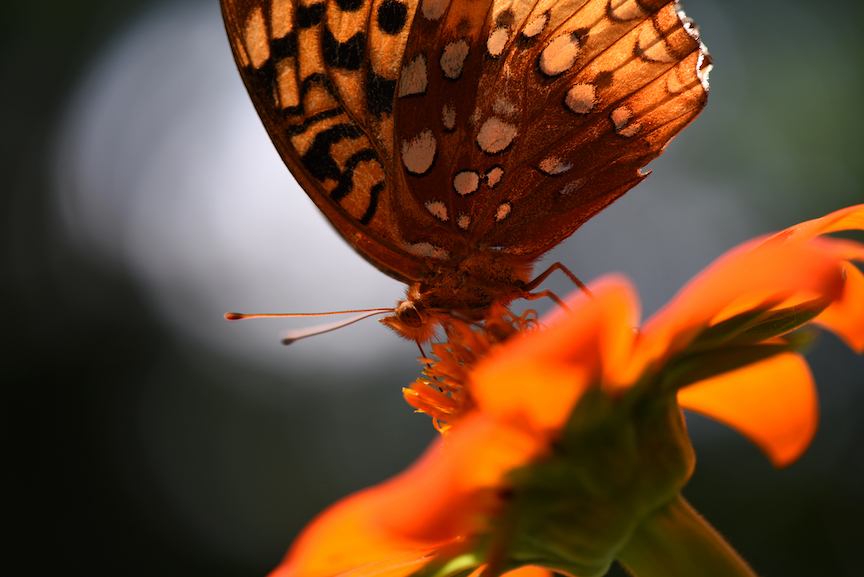
As a butterfly lands on the delicate orange blossoms of a Mexican sunflower, it’s comforting to know that the insect is safe, at least while enjoying my chemical-free garden. It’s just one of the reasons I’m an organic gardener, and you should be too.
It’s more important than ever to garden organically, as pollinators and other beneficial insects are declining.
We’re all exposed to some types of chemicals in our modern lives, but less is better than more.
There’s no reason to use chemical pesticides, herbicides or fertilizers in the garden. Any pest or disease can be dealt with naturally.
I started gardening this way and writing about it over 40 years ago. Back then some people were a little skeptical, but over the years, more and more gardeners came to understand that using natural inputs for the garden is better for the good bugs, and our families and neighbors too. “Everyone lives downstream” is the mantra.
It all begins with the soil. By adding organic matter like compost, we’re providing a place for plants to thrive. When plants are growing strong, they do a much better job at fighting of pests and diseases.
It’s important also to realize that most of the insects in the garden are either good or benign. There’s an overwhelming advertising budget telling gardeners that’s not true, claiming bugs are bad.
The truth of the matter is nature is really good at creating a balance if we leave things alone. When broad-spectrum pesticides are sprayed at will, that balance is disrupted, and even though the goal of killing the bad bug is accomplished the collateral damage includes good bugs and possibly soil life too.
Everything that’s naturally in the soil, from microbes to earthworms, are part of the cycle of life for our gardens and helps plants thrive.
When it comes to fertilizers, the chemical version is often laced with salt, which can cause problems for that precious soil life. Fish or kelp-based fertilizers are a better choice.
When dealing with pests, don’t panic, identify and specifically treat the problem with an organic control.
Be warned though, just because something is organic, doesn’t make it safe. There are many organic-based pesticides that are too toxic for my garden.
There are two that cover a lot of ground, insecticidal soap and horticultural oil. They are sprayed directly on the bad bug to kill them. It’s used on aphids, spider mites, whiteflies and other sucking pests.
Captain Jack’s Dead Bug Brew is used on chewing insects like cabbage worms and Japanese beetles. They ingest the brew and then are dispatched.
Watering and mulching are other important components for the organic garden. The garden itself only needs on inch of water a week. A thick layer of mulch around the plants will help keep the soil evenly moist.
Water deeply in the morning if possible, and containers might need watering more often, depending on the amount of rain and the size of the pot.
Encourage pollinators by planting as many different flowers as you can and try to have something blooming from early spring through late fall.
There are three simple things I tell people when they switch to organic gardening. “Improve the soil, know when the plants go in the ground and don’t let them dry out.”
Even though gardening is a lifetime learning adventure, those little tips will give you the so-called green thumb.
It feels good to go out into the organic garden, knowing it’s a safe place for our garden helpers.
It’s important to make a positive difference by gardening organically, even if it’s just a little help for our environment, it’s certainly better than the alternative.
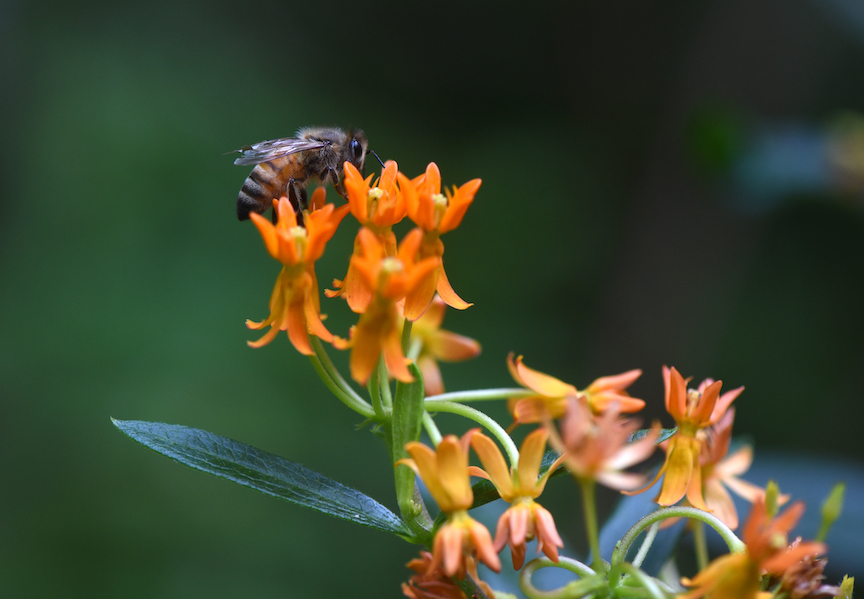
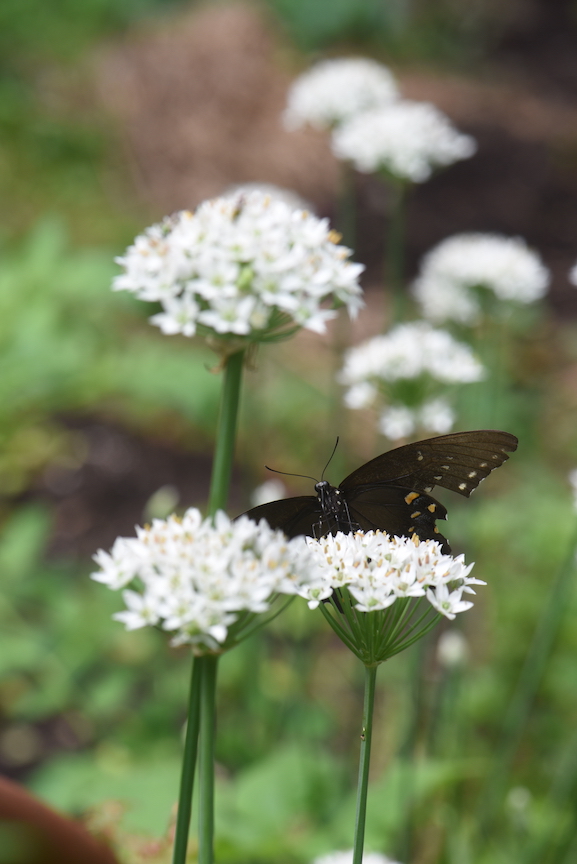
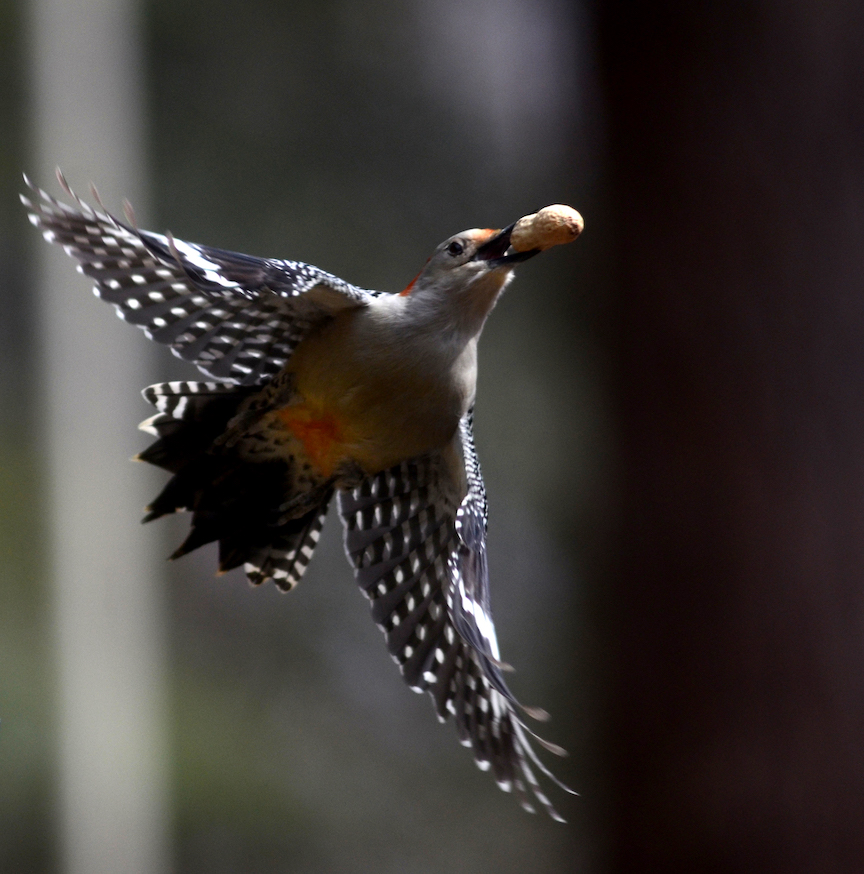
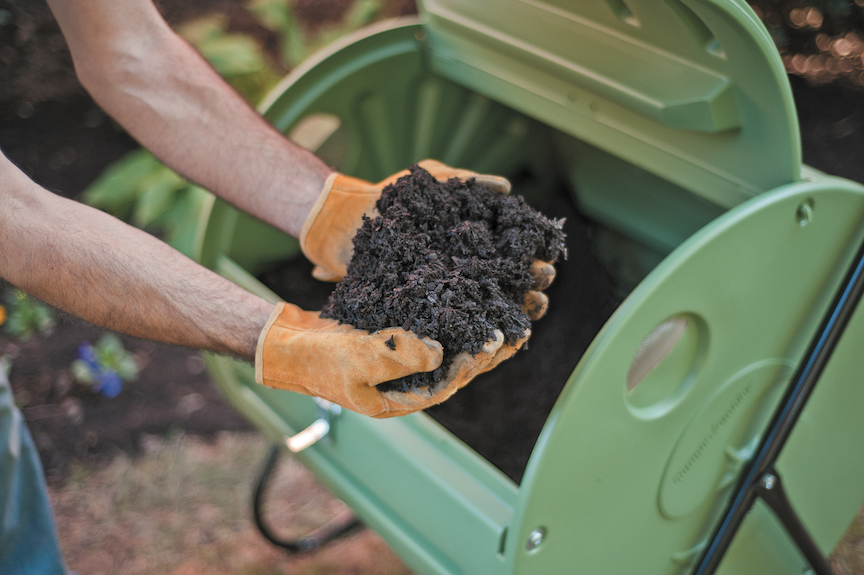
The invasive spotted lanternfly has been making an impact on pockets of Western Pennsylvania. It will attack 70 different species including grapes and apple trees. Its favorite host tree though is a tree of heaven.
Doug has a video that shows how to make a trap for the pest which can be viewed here.
My friend Ellen Zachos will be appearing twice at Phipps Conservatory and Botanical Gardens as part of a Summer Short Course on Tuesday, August 22, 2022.
She is the author of Backyard Foraging and seven other gardening books.
Zachos is the headlining speaker at the Summer Short Course: Eat Your Backyard, Foraging and Cultivating Unusual Edibles. The all-day event costs $95. Other speakers will cover growing nuts, small fruits and the Western Pennsylvania Mushroom Club will talk about foraging mushrooms.
All the details are right here.
Joe Hamm’s Daffodil Garden in Washington, Pa., is the greatest collection of blooming daffodils I’ve ever seen. If you’re interested in growing some of his rare and unique varieties, he selling some of the bulbs to help fund his non-profit garden. All the details are at dougoster.com.
Put mid-April on your calendar and head down there to see the flowers. It’s free to walk the grounds and you’ll leave with a wonderful bouquet of blooms.
One of my favorite stories about the daffodils is the introduction of ‘Katharine Hepburn’ by Joe.
‘Spencer Tracy’ is a named variety from the 1940s which is growing in Joe’s beds. When the two women who assist him in the garden realized there was no daffodil named for Hepburn, he went to work, finding an unnamed variety and registering the cultivar as ‘Katharine Hepburn.’ It blooms around the same time at Tracy, and is a couple of beds away, but the two will always be together in the garden.
Doug Oster writes a column for The Green Voice Weekly Newsletter. He is also the host of The Organic Gardener Radio Show every Sunday morning at 7 a.m. on KDKA radio 1020AM. He also is hosting the television program, In Doug’s Garden by Davey Tree, which airs every Saturday morning at 9 a.m. on CBS/Pittsburgh Streaming.
To see more garden stories, photos and videos go to dougoster.com.

Leave A Comment